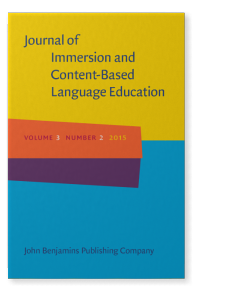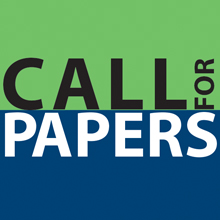
Journal of immersion and content-based education
-SHARING RESEARCH FINDINGS ACROSS ALL CONTINENTS-
CALL FOR PAPERS
The Journal of Immersion and Content-Based Language Education (JICB) is an international research journal published twice per year by John Benjamins. The inaugural issue appeared in Spring of 2013 and is available online: https://www.benjamins.com/#catalog/journals/jicb.1.1/toc
JICB aims at publishing research on language immersion and other types of content-based language education programmes that are subject matter-driven and subject matter-accountable. We welcome submissions from around the world based on, for example, language immersion education, dual language education, bilingual education, CLIL (content-and-language integrated learning), sheltered English as a Second Language (ESL), language across the curriculum (LAC), language for specific/academic purposes, content-based indigenous language revitalization initiatives, and so on.
Please visit our website for more information and guidelines for authors:
http://www.benjamins.com/#catalog/journals/jicb/main or contact the JICB board:
Editors Diane J. Tedick | University of Minnesota
Perspectives on New Research
Book Review Editors Tara Fortune | University of Minnesota
Editorial Board
Monica Axelsson | Stockholm University
Siv Björklund | University of Vaasa
Christiane Dalton-Puffer | University of Vienna
Roy Lyster | McGill University
John Trent | Hong Kong Institute of Education
David Lasagabaster | University of the Basque Country
Kees de Bot | University of Groningen
Claudine Brohy | Université de Fribourg
Donna Christian | Center for Applied Linguistics, Washington, DC
Diane Dagenais | Simon Fraser University
Tina M. Hickey | University College Dublin
Stella Kong | Hong Kong Institute of Education
Kathryn Lindholm-Leary | Prof. Emerita, San Jose State University
Stephen May | University of Auckland
Karita Mård-Miettinen | University of Vaasa
Lizette Peter | University of Kansas
Rita Elaine Silver | National Institute of Education, Singapore
Marguerite Ann Snow | California State University, Los Angeles
Anne-Marie Truscott de Mejía | Universidad de los Andes, Bogota
William H. Wilson | University of Hawaii at Hilo



